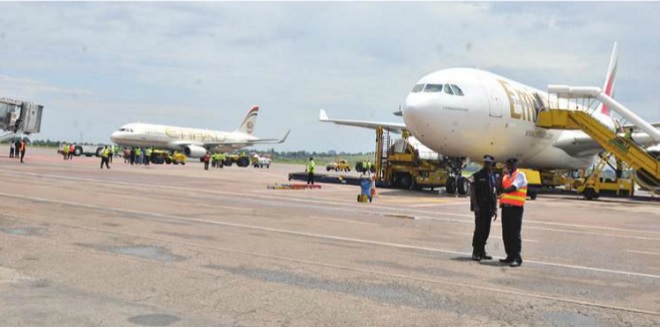
Around the time he set up an offshore facility, Kutesa had just been reinstated as Foreign Affairs Minister after being forced to resign in October 2011 under pressure from parliament for his alleged role in corruption scandals around the 2007 Commonwealth Heads of Government Meeting (Chogm) held in Kampala. Over Shs 200 billion was allegedly stolen. It was also the year when Kutesa’s name was forwarded for consideration as UN President to the African Union and UN.
He had also just been cleared by a parliamentary investigation of allegations he had taken oil bribes from Tullow oil.
While tax havens are legal, many companies and individuals that operate there tend to be shrouded in secrecy and engage in opaque business dealings.
ICIJ reports that an internal Appleby document from 2015 reported that Kutesa’s company’s intended activities were “consultancy, investments, trading and airport services in Uganda.”
In 2015, however, Appleby noted that the companies connected to the trust were dormant and that “it seems that nothing much is being done.”
Enhas dealings
The money to the trust was supposed to come from Enhas, a major ground handling service at Entebbe International Airport which has existed since 1995 with Kutesa as a major shareholder.
Kutesa gained ownership of Enhas in a controversial and complex process that also got him into trouble.
It started in 1993, when civil Aviation Authority liberalised ground handling operations at Entebbe Airport. It terminated Uganda Airlines Corporation (UAC) and a consortium called Enhas was formed in 1995 and granted exclusive ground handling rights.
The UAC took 50% shares in Enhas, Sabena Airlines 5 percent and workers of CAA and UAC also got 5%. The remaining 40% went to two companies—Effortes, a subsidiary of Caleb international owned by President Museveni’s brother, Caleb Akandwanaho aka Salim Saleh and Global Airlink owned by Kutesa.
Then two years later when UAC was obliged to sell its shares in Enhas to pay its debts, Effortes and Enhas; meaning Saleh and Kutesa, acquired them.
It emerged that Kutesa, who at the time was the head of Global Airlinks and also the board chairman of Enhas, used an accounting firm he was close to undervalue the shares, which he later acquired with Saleh. A clear indication that UAC’s shares were undervalued emerged when a year later Saleh, who had acquired 45 percent shares of UAC for $3.75 million was looking to sell at $9.45 million.
A 1998 parliamentary committee investigation concluded the process had been “manipulated and taken advantage of by a few politically powerful people who sacrifice the people’s interests.” Parliament censored Kutesa in 1999. But Museveni re-appointed him after the 2001 elections.
 The Independent Uganda: You get the Truth we Pay the Price
The Independent Uganda: You get the Truth we Pay the Price





